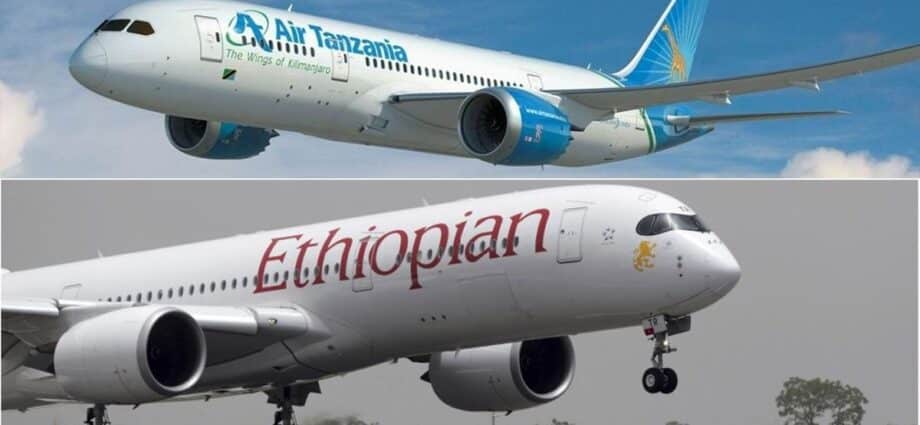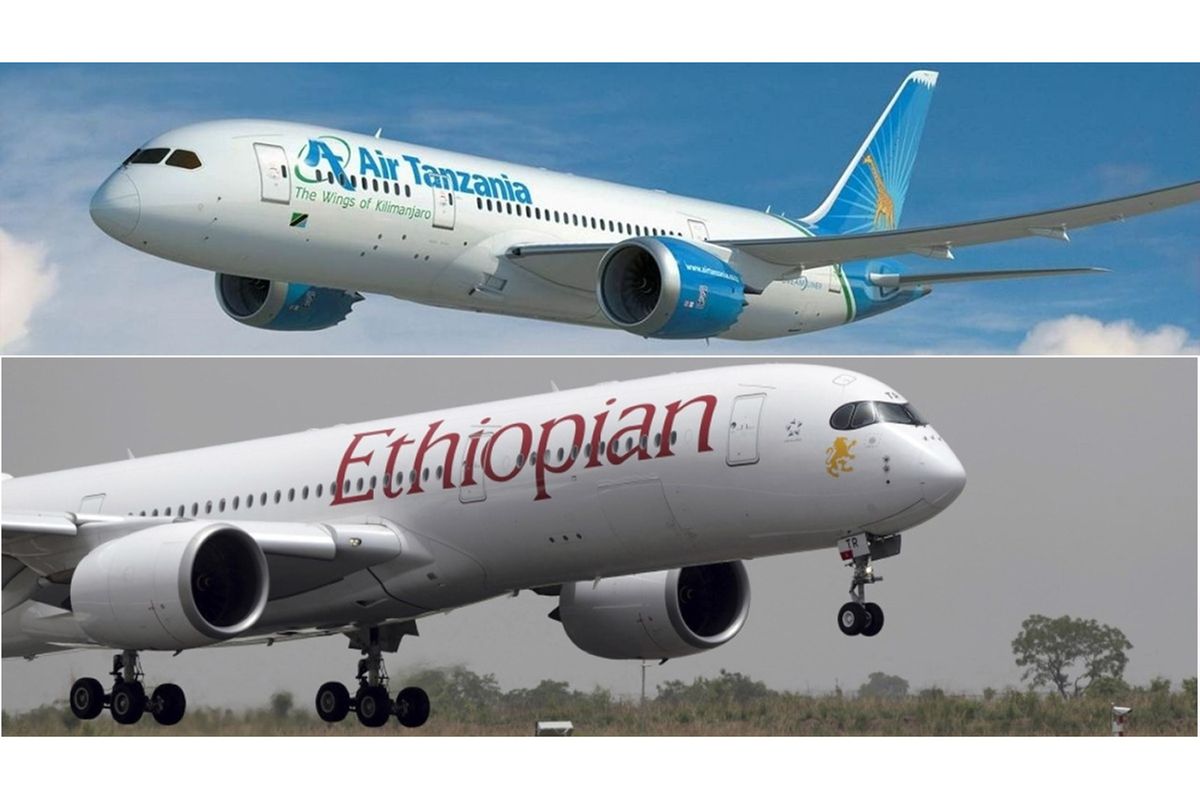Dar es Salaam. Experts have advised Air Tanzania Company Limited (ATCL) to avoid government interference in its operations and emulate the Ethiopian Airlines management system to enhance its efficiency.
They also advised that ATCL should shun using large aircraft for domestic flights to reduce operation costs.
The advice was shared during the launch of the book dubbed ATCL Business Model, authored by Media Brains Institute, and focused on detailing how the organisation can efficiently enhance its service delivery.
The book is launched at a time when ATCL, the Controller and Auditor General (CAG), Charles Kichere’s report made it that the airliner reported a loss of Sh56.6 billion in 2022/2023, an increase of 61 percent from the Sh35.24 billion loss recorded in the preceding year.
Speaking at the launch, former Controller and Auditor General (CAG) and Wajibu Institute of Public Accountability executive director Ludovick Utouh said the government should find ways to avoid interfering with ATCL’s operations to enhance its efficiency.
“The government should provide ATCL with a conducive operating environment and reduce the use of large aircraft for domestic routes, which burdens the company and leads to losses,” he said.
Mr Utouh suggested that ATCL could adopt the Ethiopian Airlines operational model by allowing ATCL to operate freely as a business entity without government interference.
This approach has allowed Ethiopian Airlines to remain profitable and maintain a large fleet compared to other regions.
Furthermore, he said Ethiopian Airlines’ business model allows the organisation not only to operate independently but also to manage all aviation-related services such as airports, flight training schools, and ground services.
“This allows Ethiopian Airlines to generate additional revenue along with its regular flight income and reduces its operational costs,” added Mr Utouh.
Efficiency is also expected if the government continues to support the empowerment of the organisation as it did during the fifth and sixth phases of government.
Utouh mentioned that the current CAG report indicates that the use of large aircraft such as the Boeing 787 Dreamliner for domestic flights has resulted in losses.
Quoting the report, he said that through these flights, ATCL generated total revenue of Sh45.67 billion and incurred direct costs of Sh70.57 billion.
“This amounts to an operational loss of Sh24.9 billion. This problem could be solved by increasing the number of smaller aircraft for domestic flights and increasing the number and frequency of international flights with larger aircraft,” he said.
Furthermore, Mr Utouh suggested exploring ways for the country to develop a middle-income population that can afford air travel when needed: “As people’s incomes expand, their ability to purchase tickets also grows.”
The Media Brains Tanzania director, Mr Jesse Kwayu, said the availability of more domestic flights facilitates transportation and stimulates economic growth.
“Some people interviewed said that in the past, a person from Mpanda or Tabora who wanted to travel to Dar es Salaam by air had to go to Mwanza by bus first before taking a flight. But now there are flights directly to those areas,” he said, adding,
“Air travel offers convenience but also opens up the country; however, the cost of tickets remains a challenge for many Tanzanians.”
Media Brains Tanzania co-director, Mr Neville Meena, said having ATCL handle all aviation-related services, such as airports, flight training schools, and ground services, would help reduce ticket prices for the public.
“Doing so will avoid having to cover certain costs, which can lead to growth for the organisation and potentially lower the ticket prices currently charged to the public,” he said.
Regarding ATCL’s success stories over the past six years as detailed in the book by ATCL CEO Ladislaus Matindi, the company has seen a significant increase in the number of domestic passengers from 32,000 to over 1 million currently.
There has also been an increase in the number of aircraft from one to 15, and pilots from 20 to 105, about 99 percent of whom are local.
Part of the book’s content echoes experts’ opinions, urging ATCL to stop using large aircraft for domestic flights and instead invest in smaller aircraft for regional flights, therefore reducing losses compared to the revenue generated.














